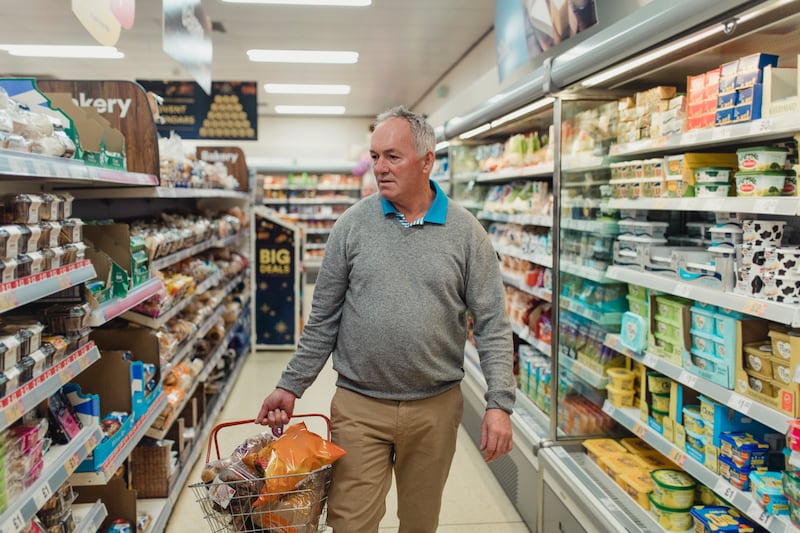WHILE grocery inflation eased in the UK for a fifth straight month in August, shoppers in Northern Ireland aren't yet seeing the full benefits at the supermarket tills when they check out their baskets and trolleys.
Annual grocery inflation was 12.7 per cent in the four weeks to August 6 versus 14.9 per cent in July, according to analysts Kantar.
In Northern Ireland, grocery market saw sales grew by 10.1 per cent in the year to August, with shoppers spending an additional £368.7 million.
And grocery inflation here now stands at 16.8 per cent, which means the average annual grocery bill is set to rise by £894 per household from £5,320 to £6,214.
“That's if consumers don’t make changes to what they are buying" according to Emer Healy, Kantar's business development director.
“As food and drink prices continue to climb, with average prices up 10.7 per cent compared to last year, the impact on shopper budgets is unavoidable for many Northern Irish consumers.
“As shoppers look for ways to manage costs, many are turning to cheaper alternatives such as retailer own label lines, where sales are up £231 million compared to last year and against branded products which are up £142 million year-on-year."
She added: “It may have been a wetter start to August than usual, but this did not deter Northern Ireland consumers from enjoying summer favourites, with an additional £2.5 million being spent on burgers and ice-cream combined compared to last year."
Tesco remains Northern Ireland’s largest grocer with a 34.9 per cent share of the market, growing 9.4 per cent year-on-year. It welcomed an influx of new shoppers in store alongside more frequent trips, which contributed an additional £137.4m to their overall performance.
Lidl holds a 9.2 per cent market share in Northern Ireland, seeing the strongest growth among all retailers, up 27.4 per cent year-on-year, alongside the largest influx of new shoppers, up 2.6 percentage points. In addition, it had more frequent trips which contributed an additional £41.9m to its overall performance.
Sainsbury’s has a 16.5 per cent share while Asda sits at 16 per cent of the market. They added extra sales of £31.2m and £74.3m respectively to their overall performance.
The north's symbol retailers - made up of independents like Spar, EuroSpar, Centra and Vivo - command a near 8 per cent slice of the pie and are growing.
Last week Mallusk-based Henderson Group, which supplies the Spar, Vivo and EuroSpar network, said its turnover climbed 15.6 per cent to £1.23 billion in the year to last December as pre-tax profits rose by 8 per cent to £57 million last year.








